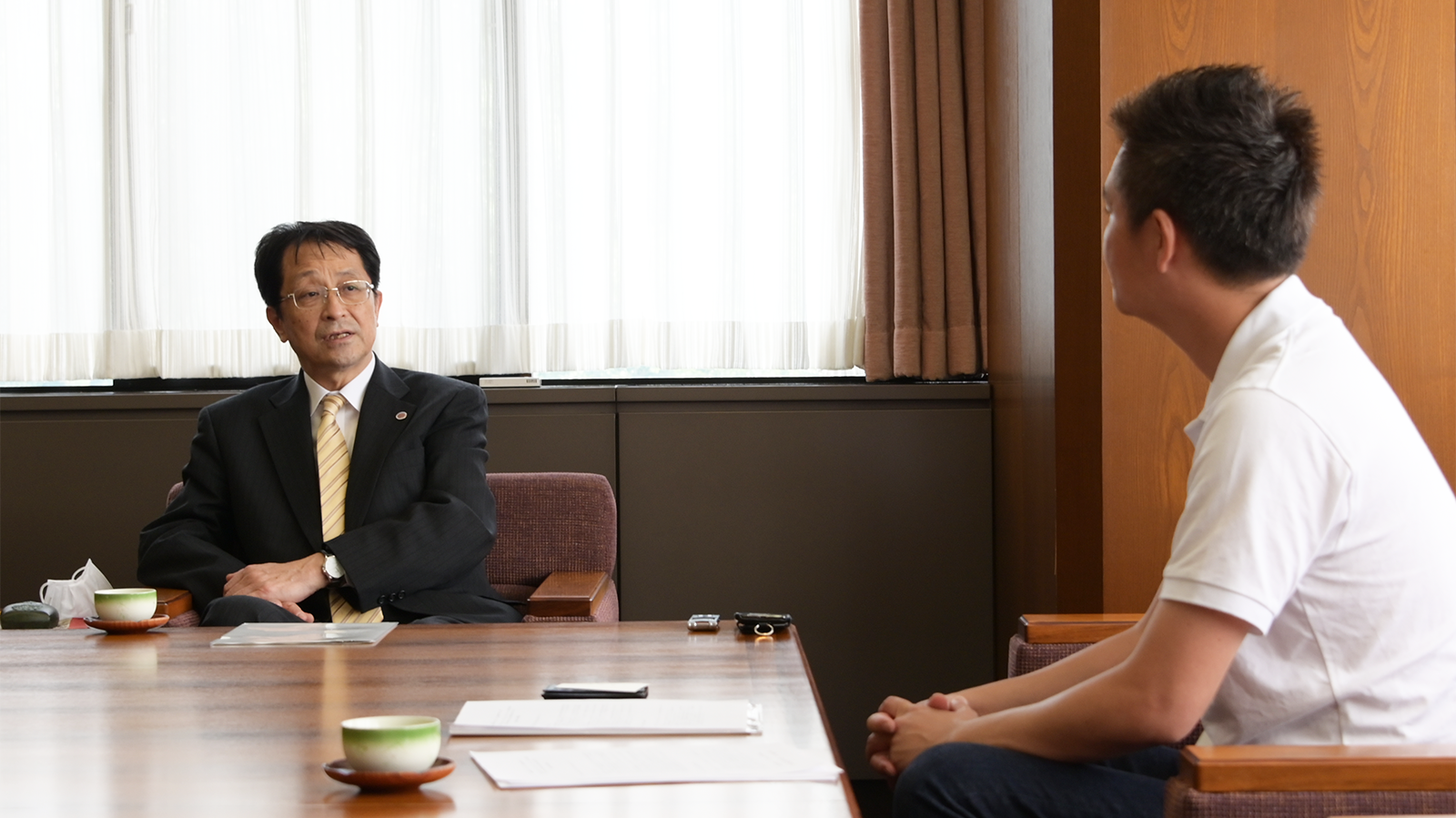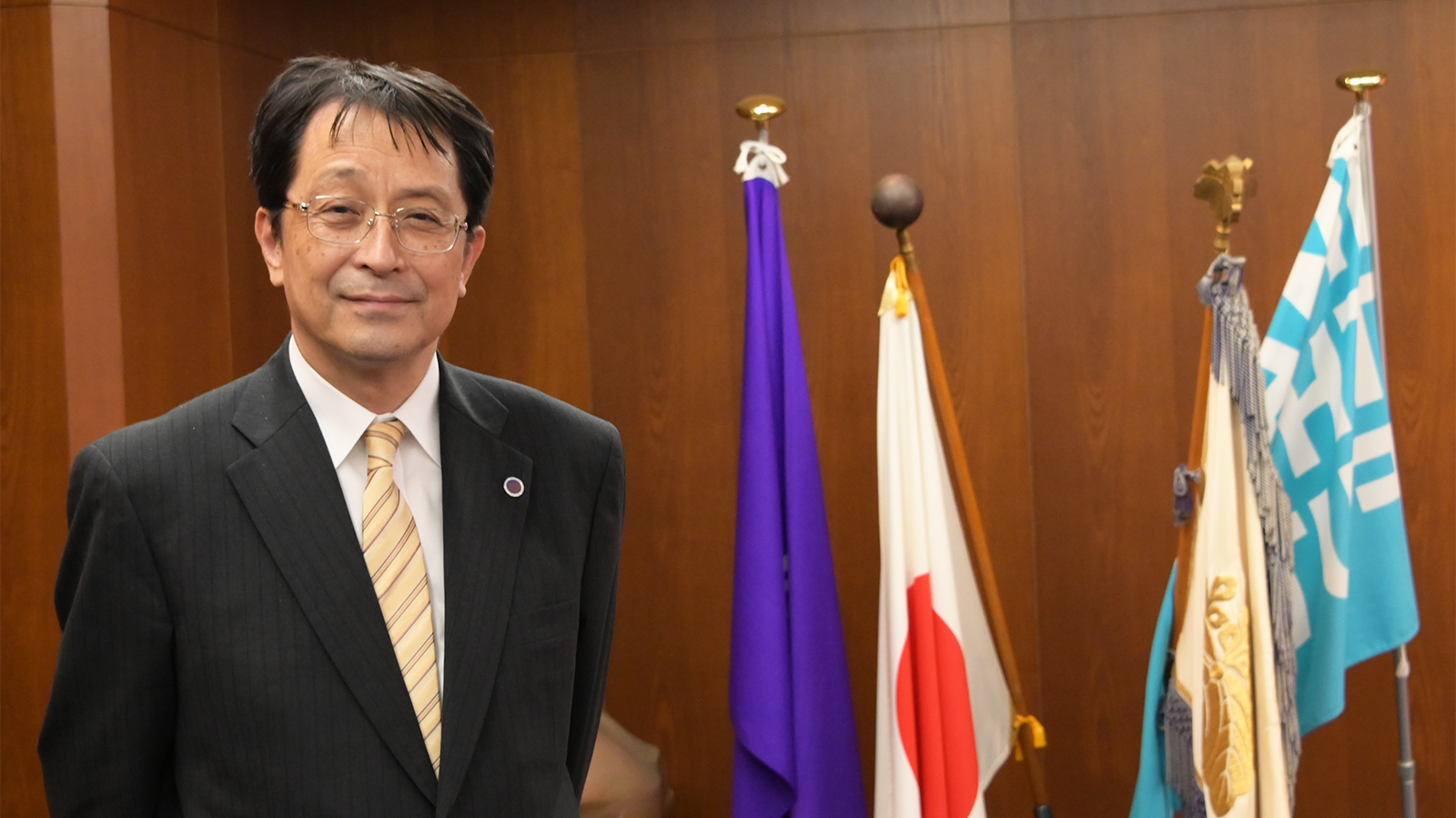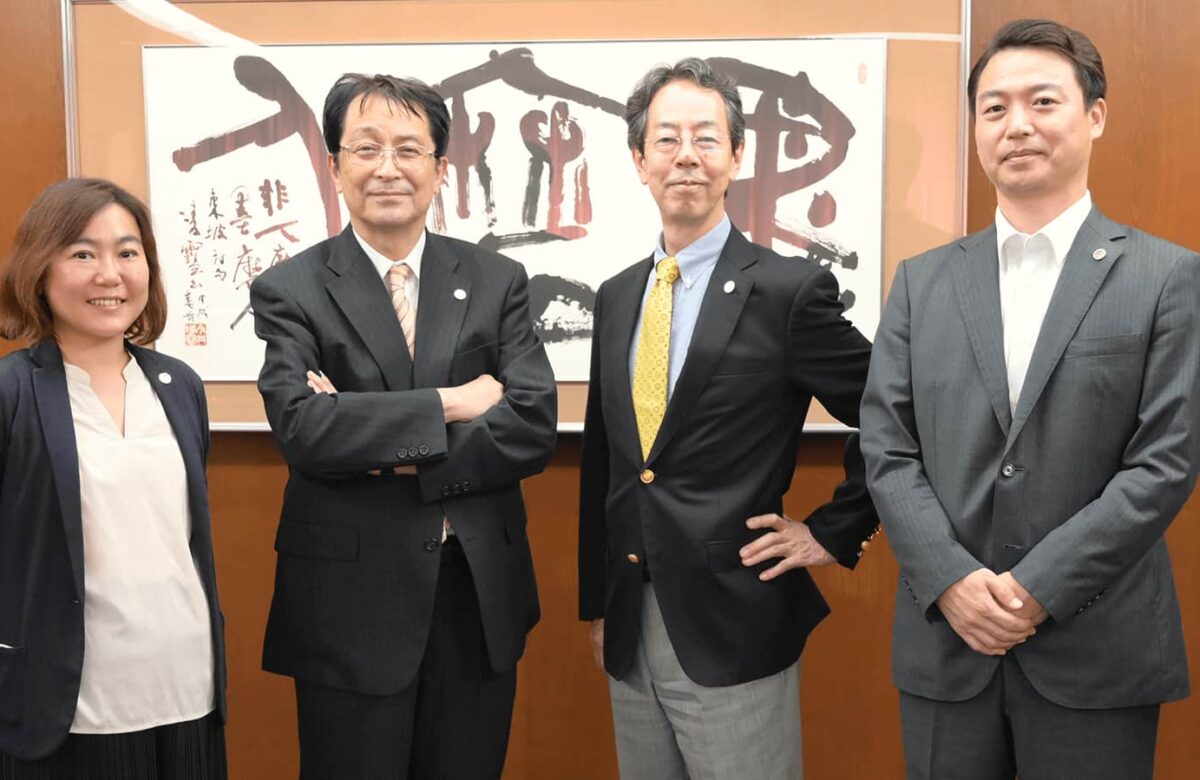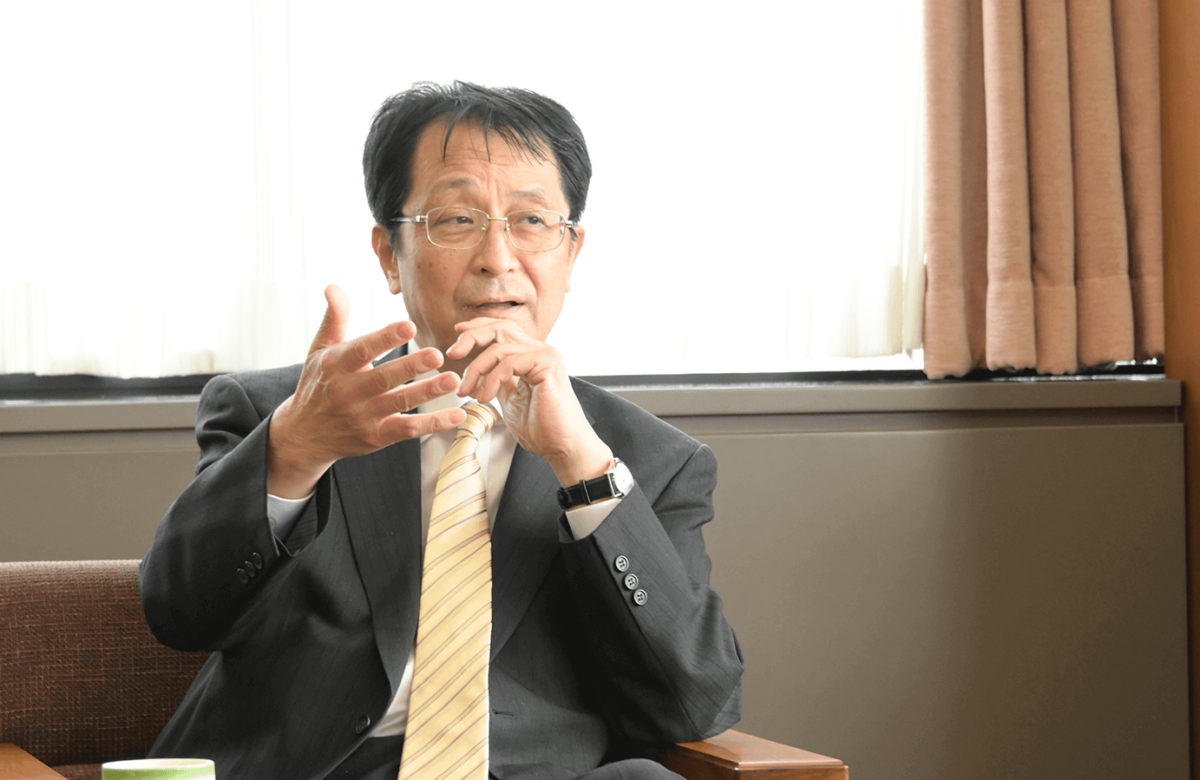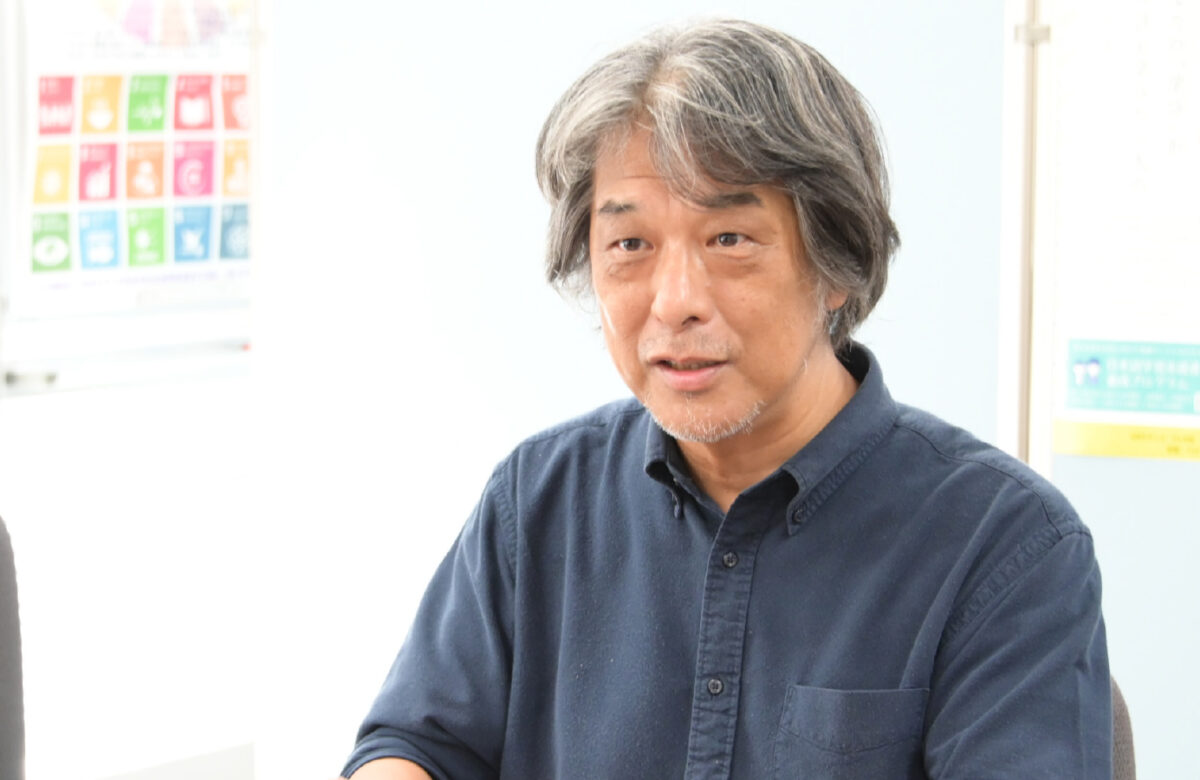Putting Control Back into the Hands of Researchers
An interview with Kyosuke Nagata, President of the University of Tsukuba
- UniversityArticleInterview
- February 1, 2021
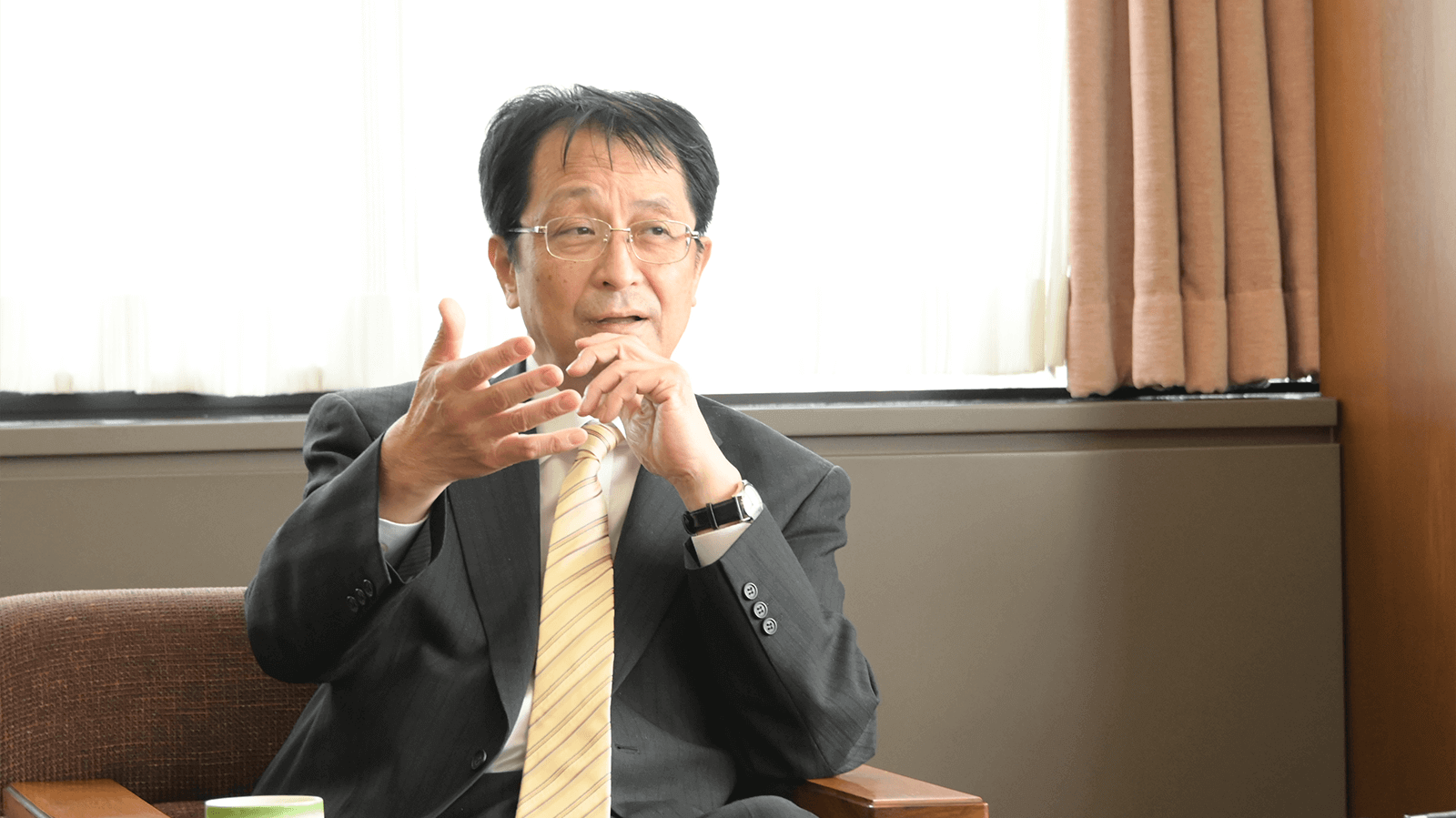
Kyosuke Nagata is a passionate reformer who came to the university to promote change. The University of Tsukuba’s speedy implementation of its own open research publishing gateway (something that was not considered possible at a national university) was strongly supported by the president.
Your university’s bold decision to develop a proprietary open research publication gateway seems to be a strong message to major commercial publishers.
Scientists and scholars must take charge of the core of research—this is the most important message we want to convey. Researchers are responsible for conducting research and publishing, and research initiatives should stay with researchers. However, academic publishing is dominated by publishers who act like real estate agents and “mediators” of publishing. This is not how it should be.
Researchers are the “producers” of research, and their findings should be widely consumed as public property around the world. However, in the current system perpetuated by major commercial publishers, publishers, not the researchers, have control and own the copyright to the publication. This is the fundamental issue with modern academic publishing.
Second, major publishers charge researchers twice: when manuscripts are accepted for publication, they pay a high publication fee to the journal, something to the tune of $4,000 or $5,000 for one manuscript. In my specialized field of life science, I may write ten papers a year. This brings the publishing fee to $40,000–50,000. Researchers are then charged a journal subscription fee to read their own work. In some cases, researchers may end up paying the publisher more than what they spend on research.
Researchers have no control over the publication of their research. They don’t own the copyright to their work, but they are expected to shell out a large sum for magazine subscriptions. The university and the research community want to put an end to this. We wanted to cast a spotlight on this problem through our unique way by developing our own open research publishing gateway (with F1000Research).

While there has been a widespread boycott of academic publishers at universities abroad, particularly in the US and Europe, very few Japanese universities have taken any concrete action in this direction.
People in Japanese universities share this concern. You might say that we should take a stronger stand like in the West, like boycotting the magazine subscription of a specific publisher or declaring noncooperation with the peer review process, as seen in Germany. But I wonder if this is the correct course of action.
Doesn’t it seem contradictory and strange that, on the one hand, we are seeking to wrest control of research from commercial publishers and give it back to researchers and, on the other hand, governments and universities are taking literature away from researchers and forcing them to not participate in the peer review process that forms the basis of research development?
Some circumstances in the university system and culture are peculiar to Japan. Unlike countries with strong private universities, such as a number of European nations and the United States, science research conducted in Japan is concentrated among national universities. National universities have a responsibility of protecting research quality in Japan. Thus, we need to ask whether it is correct to prioritize university policies and restrict access to research information, which is the lifeline of the faculty and students. Even if you want to challenge a major publisher, the underlying culture of national universities does not allow it. It would result in doing things in the wrong order and hinder the work of scholars rather than helping them get scholarships.
Another important point is that the gateway developed in collaboration with F1000Research is the first in the world to enable publication in Japanese.
We cannot ignore the fact that the humanities and social sciences have been at a disadvantage in Japan. Consider a scenario where one writes a dissertation on English literature in English, on German studies in German, and on Japanese studies in Japanese. We cannot ignore problems facing the universities in Japan, such as the one with academic publishing. Irrespective of the language, I think that the basic academic information should be shared on an international platform so that it can be accessed by anyone in the world. Those who find value in such information will delve deeper even if the text is in a foreign language. However, at present, even primary information about the existence of a paper is not shared in international databases. This is a huge problem.
Contemporary research is progressing globally and across disciplines, and the humanities and social sciences are no exception. Just look at the research on the novel coronavirus. We live in a time where research transcends geographical borders and disciplines. Creating a publishing platform that transcends the language barrier is of great significance. As a university that caters to all disciplines, we at the University of Tsukuba felt that we must do something to make the world more aware of the value of humanities and social sciences research. The F1000Research gateway allows researchers to submit papers in Japanese, and if certain criteria are met, these papers will be indexed in international databases. Of course, this is just one step, and publishing and research evaluation in the humanities and social sciences fields need further reforms.

This move—of proposing a publishing model that does not rely on publishers—by the University of Tsukuba seems to be a new way of indirectly questioning the challenges of modern academic publishing.
“Why the University of Tsukuba?” some ask. “Continuous reform of the system” is a mission that our university has been carrying out since its foundation. The history of the modern national universities began when the old Japanese universities underwent systemic reforms in 1947. The University of Tsukuba was established in 1973, 26 years after these reforms. Our university is committed to reforming the old system and challenging and improving the prevailing rigid structure. The university believes that one must have a reform mindset before asking whether or not one will succeed. If that is the University of Tsukuba’s role, we cannot ignore problems facing the universities in Japan, such as the one with academic publishing. One has to do what one needs to do even if risks need to be taken. This is what I truly believe in.
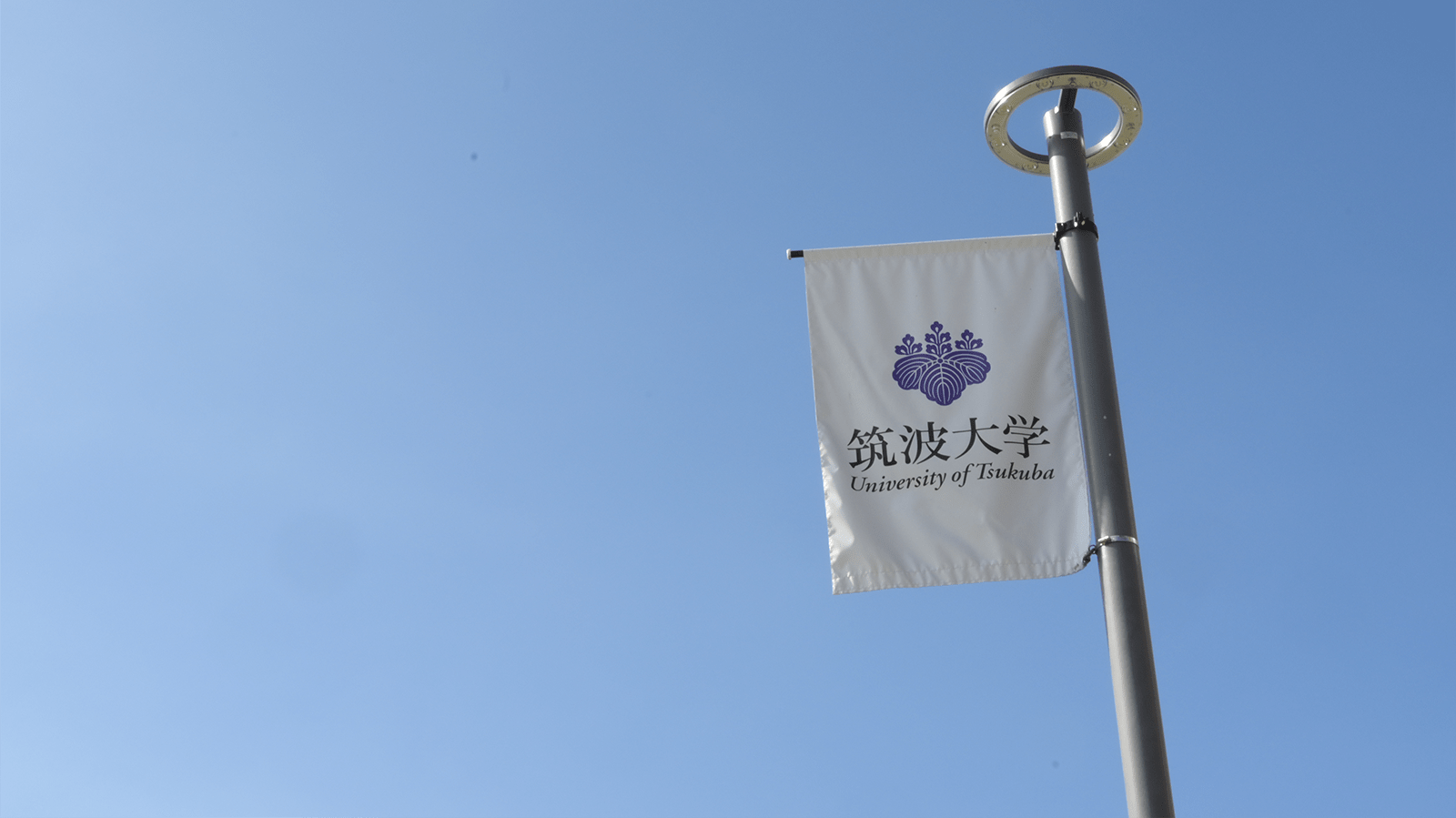
If open publication advances, will there be a change in the way universities are evaluated, like in the current process where universities that publish in English and have the highest number of papers in the most influential journals are ranked high? What are your views on university rankings?
The president of Oxford University was very clear about his stand on university rankings: “University rankings are useless, but I am happy to be number one.” Most universities admit that rankings have a bearing on the university internally and externally, but I do not think that that it is enough to change the education and research system of the university. It is meaningless if the focus is on improving the rank. Rankings may not be that important, but they still are a big deal. People, irrespective of where they come from, want to be ranked higher. I am no different.
The significance of the current university rankings will eventually be lost. Universities have seen their rankings fluctuate with ranking authorities changing databases and methodologies every year. The limitations of the ranking system are evident, and the credibility of the results is already diminishing. Eventually, I believe AI will make such rankings irrelevant by uncovering the unique proposition and value offered by each university, and students will be able to use an app to select a university based on their needs. The current ranking is based on a biased index decided by someone, such as a reputation survey or by citation. However, an AI-based indicator will be more objective and can be customized as per students’ interests. If university information is made more easily accessible as described, the ranking conducted by organizations like Times Higher Education (THE) and Quacquarelli Symonds (QS) will cease to be relevant. Each university will also be able to promote institutional research, analyze its strengths and weaknesses, and step on the international stage.
The University of Tsukuba staff said that one of the most important factors in their decision to introduce F1000Research was the President’s encouragement. What is your management policy as Rector?
I am not a “well-mannered” president (laughs). I do not follow the old system. There are many things that everyone cannot do even if they want to do it or change things. Bringing about changes in the university is difficult for me. However, someone has to change the foundation of a rigid society. I think that my views are aligned with the University of Tsukuba’s reform philosophy. For the entire university organization to change, there must be a system to support and back those who want to change—even if you do not get full approval from the faculty and staff. The University of Tsukuba is such a university, where a few supporters can help and change the organization by taking small and steady steps.
KYOSUKE NAGATA
Kyosuke Nagata is President of the University of Tsukuba. He obtained a doctorate in Pharmacy from the Graduate School of Pharmaceutical Sciences at the University of Tokyo in 1981. He has been a Professor of Basic Medicine at the University of Tsukuba since 2001. In 2009, he elucidated the structure of RNA polymerase in collaboration with Yokohama City University. He specializes in molecular biology and viral science.
This article is a part of ScienceTalks Magazine issue Welcome to the New Era of Open Publication.


